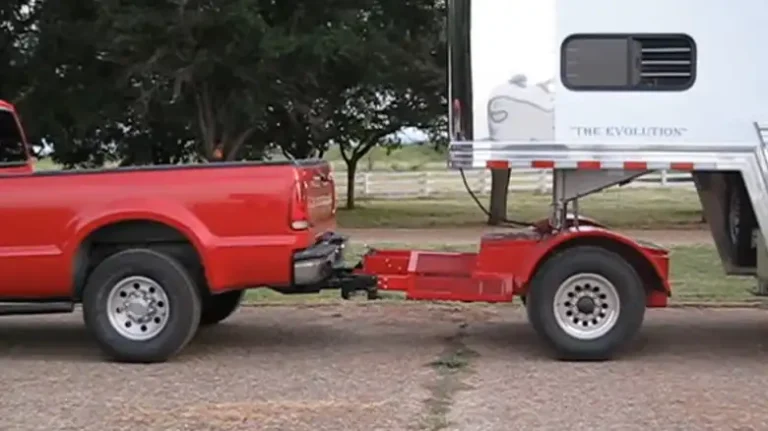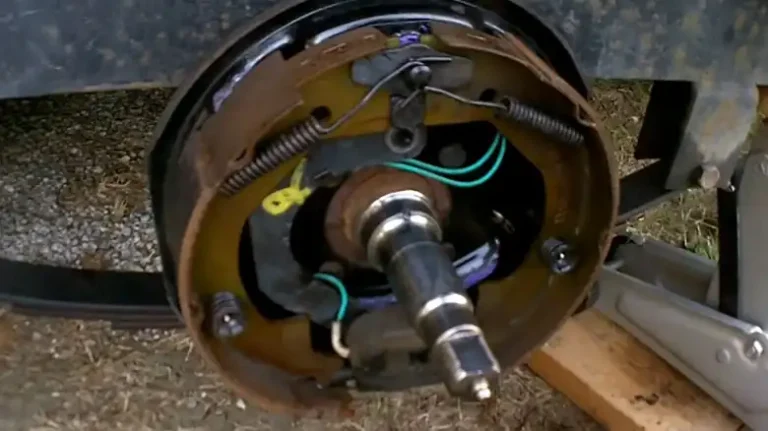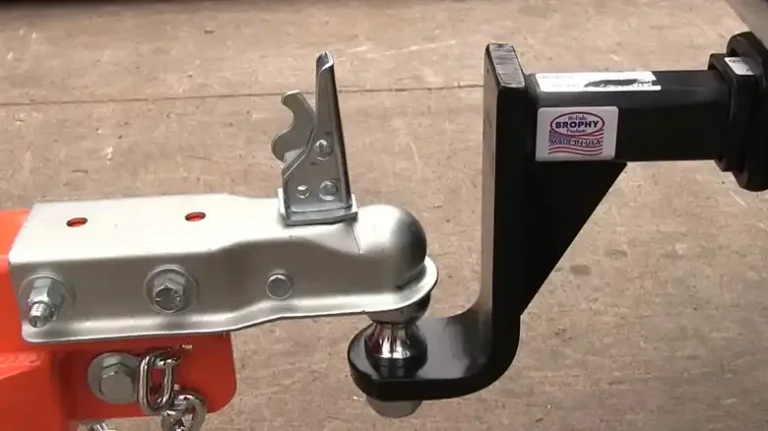Why is My Trailer Leaking Water from Underneath? Reasons and Solutions
If you’ve ever owned a trailer, you know they’re more than just metal and wheels; they’re your trusty companions on the road. However, even the most dependable travel companion can spring a leak or two. If you find yourself wondering why water is mysteriously pooling under your trailer, you’re in the right place.
This post contains all the relevant information regarding trailer leaks, exploring the common culprits, solutions, and tips to keep your trailer dry as a desert. All you need to do is read the entire post without skipping any part. So, without any further ado, let’s begin!

What’s the Reason That Trailer Leaking Water from Underneath?
In a nutshell, your trailer is leaking water from underneath because of one or more of the following reasons –
Damaged Underbelly
The underbelly of your trailer is like its protective shield against the elements. If it’s torn or punctured, it’s like leaving the front door wide open for water to get in. This often happens when you drive over rough terrain or encounter debris on the road. The good news is that this issue is usually visually detectable, and patching up the underbelly can often solve the problem.
Faulty Seals
Seals around windows, doors, and compartments are crucial to keeping water out. However, these seals can degrade over time due to exposure to sunlight and weather conditions. If you notice cracks, gaps, or missing sections, it’s time to replace or reseal them. This simple fix can save you from future water intrusion woes.
Plumbing Issues
Leaky pipes or fittings in your trailer’s plumbing system can be a significant headache. Check for drips, stains, or signs of water damage inside your trailer. If you find any, it’s time for a plumbing inspection. Sometimes, a minor leak can lead to major damage if left unaddressed.
Condensation
Condensation forms when warm air inside your trailer meets the cold surface underneath. This is a common issue in colder climates or when there’s a significant temperature difference between the inside and outside of your trailer. While not a “leak” in the traditional sense, condensation can create a damp environment conducive to mold growth. Proper insulation and ventilation can help mitigate this issue.
Poor Drainage
Proper drainage is crucial to preventing water accumulation under your trailer. If water has nowhere to go, it will pool underneath, causing potential damage. Check your trailer’s drainage channels and make sure they are clear of debris. Adding additional drainage or improving the existing system can help redirect water away from your trailer’s foundation.
The Solution: Keeping Your Trailer Shipshape
As you’re asking for information about leaking water at your trailer, it’s not too difficult to understand that you’re already facing this issue. So, assuming that you’ll also need information about how to keep your trailer dry and leak-free. Here are the considerations –
- Regular Maintenance: Make a habit of inspecting your trailer for any signs of damage or wear and tear. Catching issues early can prevent costly repairs.
- Seal Check: Periodically inspect the seals around windows, doors, and compartments. Replace or reseal them as needed.
- Plumbing Inspection: Check your trailer’s plumbing system for leaks, and address any problems promptly.
- Condensation Control: Proper insulation and ventilation can help control condensation inside your trailer.
- Improve Drainage: Ensure your trailer has adequate drainage channels and keep it clear of debris.
By following these steps, you’ll be well on your way to enjoying leak-free adventures with your trusty trailer.
The Watery Conundrum: Challenges of Trailer Water Leaks
First Challenge: Detecting the Leak
Detecting a water leak underneath your trailer isn’t as straightforward as a dripping faucet. It often goes unnoticed until the damage is done. By then, you may be facing costly repairs.
Second Challenge: Identifying the Source
Pinpointing the source of the leak can be like finding a needle in a haystack. Is it the plumbing, the floor, or something else entirely? Without knowing the root cause, you’re playing a guessing game with your trailer’s well-being.
Third Challenge: Preventing Further Damage
Once you’ve identified the source, preventing further damage is crucial. Water can wreak havoc on your trailer’s structural integrity, not to mention the mold and mildew it brings along.
Common Related Questions
1. Can I use duct tape to temporarily fix a torn underbelly?
While duct tape might provide a quick fix, it’s not a long-term solution for a torn underbelly. It’s best to use specialized materials designed for RV and trailer repairs. Duct tape may not hold up well against the elements and road conditions.
2. How often should I reseal the seals on my trailer?
Resealing the seals on your trailer depends on factors like weather conditions and usage. As a general guideline, check them at least once a year and replace or reseal them as needed. More frequent inspections may be necessary in harsh environments.
3. Is condensation a serious issue in trailers?
Condensation can lead to mold and mildew growth, which can be a health concern and damage your trailer’s interior. While not as urgent as a water leak, it’s essential to address condensation issues to maintain a healthy and comfortable environment inside your trailer.
4. Can I DIY trailer plumbing repairs?
Simple plumbing repairs, such as fixing a leaking faucet or pipe joint, can often be DIY projects. However, for more complex issues, it’s advisable to seek the expertise of a professional RV or trailer technician to ensure proper repairs and prevent further damage.
5. What’s the cost of repairing a water-damaged trailer floor?
The cost of repairing a water-damaged trailer floor can vary widely depending on the extent of the damage and the materials used. Minor repairs might cost a few hundred dollars, while extensive damage could run into thousands of dollars. It’s essential to address water damage promptly to minimize repair costs.







